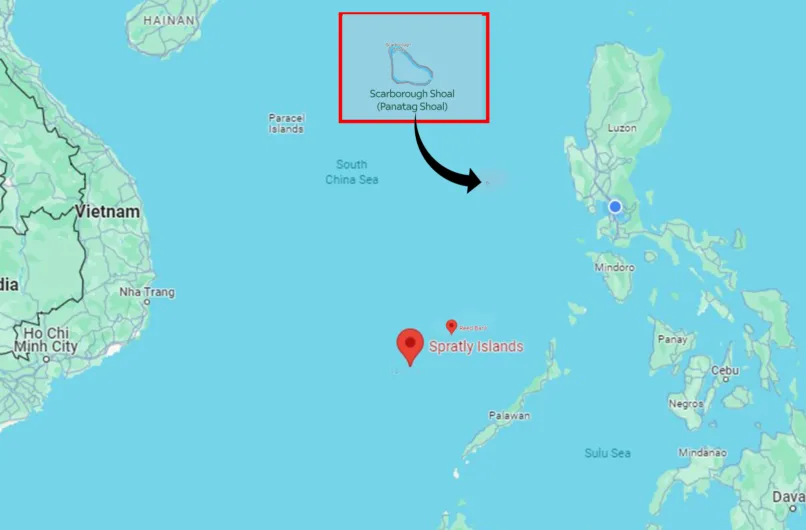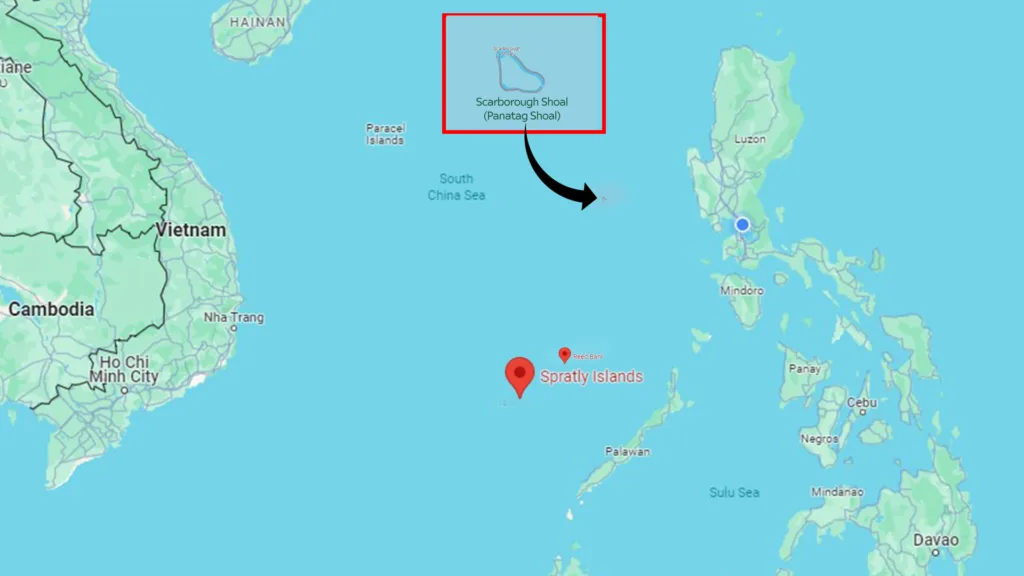
Atin Ito: 3 Powerful Reasons to Stand Firm on Our Sovereignty
Table of Contents
The West Philippine Sea, a part of the South China Sea, is a strategically significant and resource-rich maritime area. The Philippines, asserting its sovereignty, has a long-standing claim over several islands and features within this sea, a stance encapsulated in the patriotic phrase “Atin Ito,” meaning “This is Ours.” This phrase underscores the national sentiment and determination to protect and assert ownership over these disputed territories.

The Geopolitical Context
The South China Sea, of which the West Philippine Sea is a part, is one of the world’s most contested regions. It is a crucial shipping route, with a wealth of natural resources, including fish stocks and potential oil and gas reserves. Several countries, including China, Vietnam, Malaysia, Brunei, and the Philippines, have overlapping claims in this area.
The Philippines’ Claims
The Philippines bases its claims on historical usage and the United Nations Convention on the Law of the Sea (UNCLOS). The country’s Exclusive Economic Zone (EEZ), extending 200 nautical miles from its coast, covers several islands, reefs, and shoals in the West Philippine Sea. Key features include:
- Kalayaan Island Group (Spratly Islands): This group comprises several islands and reefs, including Pag-asa Island, the largest Philippine-occupied island.
- Scarborough Shoal (Panatag Shoal): A rich fishing ground, it has been a focal point of tensions between the Philippines and China.
- Recto Bank (Reed Bank): An area believed to contain significant underwater oil and gas deposits.
Legal and Diplomatic Efforts
In 2013, the Philippines filed a case against China at the Permanent Court of Arbitration (PCA) under UNCLOS, challenging China’s expansive “nine-dash line” claim. In 2016, the PCA ruled in favor of the Philippines, declaring China’s historical claims invalid and affirming the Philippines’ rights within its EEZ.
The PCA Ruling
The PCA’s ruling was a significant legal victory for the Philippines. Key points included:
- Invalidation of the Nine-Dash Line: The court ruled that China’s historical claims had no legal basis.
- Sovereign Rights: The court affirmed the Philippines’ sovereign rights over its EEZ, including fishing and resource exploration.
- Environmental Protection: The ruling noted that China’s activities had caused severe harm to the marine environment.
Despite the ruling, China has refused to recognize it, continuing to assert its claims and engage in activities that challenge the Philippines’ sovereignty.
“Atin Ito”: National Sentiment and Sovereignty
The phrase “Atin Ito” encapsulates the Philippine government’s and people’s resolve to assert their sovereignty over the West Philippine Sea. It symbolizes national pride and the collective effort to protect the country’s territorial integrity.
Government Initiatives
The Philippine government has undertaken various measures to reinforce its claims, including:
- Military Presence: Increasing the deployment of military and coast guard personnel to key areas.
- Infrastructure Development: Enhancing facilities on occupied islands, such as building airstrips and improving living conditions for residents and stationed personnel.
- Diplomatic Engagement: Seeking international support and forging alliances to counterbalance China’s influence and assert the PCA ruling.
Public Advocacy
The Filipino public, civil society groups, and local communities have also been active in advocating for the country’s claims. Activities include:
- Awareness Campaigns: Educating the public about the significance of the West Philippine Sea and the legal basis of the Philippines’ claims.
- Protests and Demonstrations: Organizing rallies and events to express opposition to foreign incursions and support for the government’s stance.
- Cultural Expressions: Using art, music, and literature to highlight the issue and foster national unity.
The Way Forward
The West Philippine Sea dispute remains a complex and sensitive issue. The Philippines continues to navigate the challenges of asserting its sovereignty while maintaining diplomatic relations and pursuing peaceful resolutions.
Balancing Act
The Philippine government aims to balance assertiveness with diplomacy, working with international partners and leveraging legal instruments like the PCA ruling to strengthen its position. Continued efforts to build a credible defense capability and promote regional stability are crucial.
Strengthening Alliances
Building strong alliances with other countries and participating in regional organizations like the Association of Southeast Asian Nations (ASEAN) are essential strategies. These alliances help amplify the Philippines’ voice on the international stage and foster cooperative security arrangements.
Conclusion
“Atin Ito” represents more than a claim to territory; it embodies the Philippines’ determination to uphold its sovereignty and protect its national interests in the West Philippine Sea. As the country faces ongoing challenges, this patriotic sentiment serves as a unifying force, rallying Filipinos to defend their rightful claims and preserve their maritime heritage for future generations.
(Disclaimer: This content is AI generated)
- May 18, 2024
- 1514
- Geopolitical , Blog
- 0 comment







Add Comment